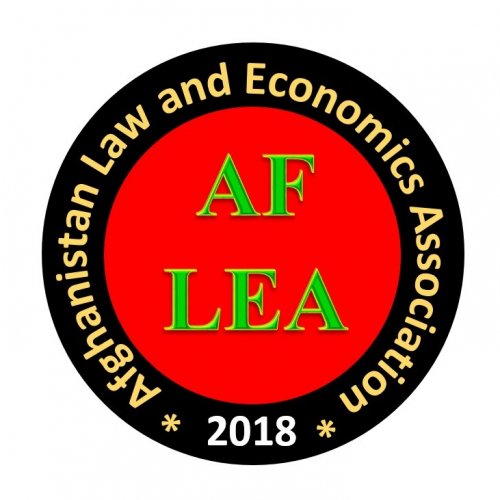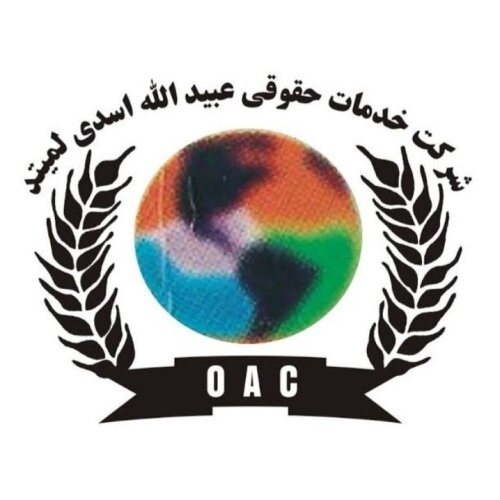Best Education Law Lawyers in Kabul
Share your needs with us, get contacted by law firms.
Free. Takes 2 min.
List of the best lawyers in Kabul, Afghanistan
About Education Law in Kabul, Afghanistan
Education Law in Kabul, Afghanistan, encompasses the legal framework that governs educational institutions, the rights and responsibilities of students and educators, and the implementation of educational policies and standards. It plays a crucial role in ensuring that educational environments are safe, equitable, and conducive to learning. In Kabul, Education Law is influenced by national policies, traditional practices, and international human rights standards, aimed at providing access to quality education for all citizens.
Why You May Need a Lawyer
There are several situations where individuals or institutions may require legal assistance in the field of Education Law. These include:
- Disputes between parents and educational institutions over enrollment, disciplinary actions, or special education services.
- Teachers or staff facing issues related to contracts, employment conditions, or wrongful termination.
- Institutions needing guidance on compliance with government regulations and policies.
- Students experiencing discrimination or harassment within the educational environment.
- Parents or guardians seeking legal advice on homeschooling or alternative education methods.
Local Laws Overview
The key aspects of local laws pertinent to Education Law in Kabul include:
- The Constitution of Afghanistan emphasizes the right to education and mandates the government to provide free and compulsory education up to a certain level.
- The Education Law, which outlines the structure, objectives, and administration of the education system in Afghanistan.
- Regulations concerning private educational institutions, including their licensing and operation standards.
- Laws related to the rights and protections of children, especially pertaining to their right to education without discrimination.
- Policies focusing on curriculum standards, teacher qualifications, and educational assessments.
Frequently Asked Questions
1. What is the right to education in Afghanistan?
The Afghan Constitution guarantees the right to education for all citizens, mandating the state to provide free education up to a specific level and encouraging higher education opportunities.
2. At what age is education mandatory for children in Afghanistan?
Education is compulsory for children ages 7 to 15, covering primary and lower secondary education.
3. How does the government regulate private schools in Kabul?
Private schools are subject to government regulations regarding licensing, curriculum standards, and teacher qualifications to ensure education quality and legal compliance.
4. What are the legal recourses for a student facing discrimination at school?
Students or their guardians can file a complaint with the school administration or seek legal action through the courts for cases of discrimination, guided by anti-discrimination laws in education.
5. Can parents choose homeschooling as an option for education?
Although not widespread, homeschooling is permitted under certain conditions. Parents must ensure the education aligns with national curricula and may need to report to local educational authorities.
6. What are the rights of teachers under Afghan Education Law?
Teachers have rights related to fair employment practices, contractual agreements, and safe work environments, similar to other employees governed by national labor laws.
7. How are school disciplinary actions regulated by law?
Disciplinary actions must adhere to regulations established by educational authorities, ensuring fairness and adherence to students' rights.
8. Are there any legal protections for students with disabilities?
Yes, Afghan laws provide for the inclusion and rights of students with disabilities, ensuring their access to appropriate educational facilities and services.
9. What role do international organizations play in Afghanistan's Education Law?
International organizations, such as UNICEF, work closely with Afghan authorities to improve education quality by advocating for policies that align with global standards and human rights conventions.
10. Can students freely express themselves within educational institutions?
While students have the right to express themselves, such expressions must align with respect for Elders, communal standards, and peace within educational settings.
Additional Resources
For further assistance, the following resources and organizations can be beneficial:
- Ministry of Education, Afghanistan - the primary governmental body overseeing education policies and standards.
- UNICEF Afghanistan - offers programs and resources focused on child education and rights.
- Local legal aid clinics - provide access to legal services for individuals needing assistance with education-related legal issues.
- Non-Governmental Organizations (NGOs) working in the field of education - can provide support and advocacy services.
Next Steps
If you need legal assistance in Education Law, consider the following steps:
- Assess your legal issue and gather all relevant documentation related to your situation.
- Consult with a qualified lawyer specializing in Education Law in Kabul to understand your rights and potential courses of action.
- Contact local legal aid services or organizations that may offer pro bono legal advice if affordability is a concern.
- Engage with community resources and forums to explore experiences and recommendations from others who have faced similar issues.
Lawzana helps you find the best lawyers and law firms in Kabul through a curated and pre-screened list of qualified legal professionals. Our platform offers rankings and detailed profiles of attorneys and law firms, allowing you to compare based on practice areas, including Education Law, experience, and client feedback.
Each profile includes a description of the firm's areas of practice, client reviews, team members and partners, year of establishment, spoken languages, office locations, contact information, social media presence, and any published articles or resources. Most firms on our platform speak English and are experienced in both local and international legal matters.
Get a quote from top-rated law firms in Kabul, Afghanistan — quickly, securely, and without unnecessary hassle.
Disclaimer:
The information provided on this page is for general informational purposes only and does not constitute legal advice. While we strive to ensure the accuracy and relevance of the content, legal information may change over time, and interpretations of the law can vary. You should always consult with a qualified legal professional for advice specific to your situation.
We disclaim all liability for actions taken or not taken based on the content of this page. If you believe any information is incorrect or outdated, please contact us, and we will review and update it where appropriate.









